Graham Reid | | 3 min read
Brian Jonestown Massacre: Leave It Alone
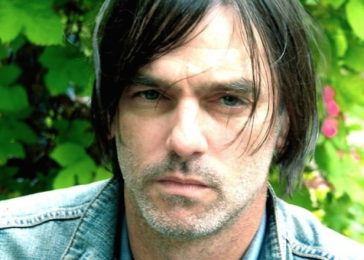
Okay, the heading there is utterly misleading because, only briefly, was Anton Newcombe of the Brian Jonestown Massacre interviewed.
Some things are just not meant to be.
The first call to him at his home in Berlin – to discuss his interesting recent albums and the new mini-album Thingy Wingy released in advance of his New Zealand tour (dates below) – begins well and ends abruptly.
Suddenly the line goes dead and although when the tape is played back he can hear me, I can't hear him.
The line is just a resounding silence. Dead air.
A week later, after I've bought a new landline phone, we try again . . . and deafening static at my end means we get little more than a minute.
“The world is conspiring against us,” I say . . . and those are my last words to him.
So we hit Elsewhere's default position and send him a questionnaire – which is a real shame because we had both enjoyed what little time we'd had. And we don't get a response to that, but he sends a message that he'd love to continue our talk but time pressures and other work defeat me.
Newcombe's work recently has pushed into tripped-out psychedelics and edged into influences from world music, and he did his soundtrack to an imaginary film.
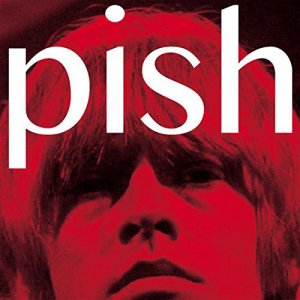 Thingy Wingy (which confusingly seems to come in a cover with the opening track Pish bannered across it) extends the shimmering
psychedelics and includes a cover of Roky Erikson's Dust. There's
also a co-write with Vladimir Nosal on the BJM's first Slovakian song
(Prsi Prsi).
Thingy Wingy (which confusingly seems to come in a cover with the opening track Pish bannered across it) extends the shimmering
psychedelics and includes a cover of Roky Erikson's Dust. There's
also a co-write with Vladimir Nosal on the BJM's first Slovakian song
(Prsi Prsi).
So there was a lot to talk about, although I'd started by asking him, as an American, how he was finding life in Berlin which has been his home for many years.
“I enjoy it very much, a wonderful city. They're very civil people and they leave you alone for the most part so I am free to pursue my work, and it's safe for my wife and child. I feel extremely safe and I was thinking before that it's okay to be any age in this city.
“You could be in your 70s and going to art shows or be in your 80s and there are plenty of activities in the park to enjoy, whether it's swimming or whatever.
“And you can be this young bohemian whatever and outsider culture or a squatter. There really is something for everybody.
“I don't see that in other cities in that degree. I think you'd feel a bit weird culturally, but for German's it's okay to be any age.”
I think that's a very European thing, I never get that sense on the West Coast of America.
“Yeah that classic thing,” he laughs. “There are some German stars with plastic faces but that's a global phenomenon.”
How long have you lived Europe?
“It was 2007-08 was when I gave up on living in Manhattan for the most part, it was so oppressive. When you leave your house you need a plan.
“When you are entering your building you need to make sure the door clicks behind you. When you walk down the street you have to hold yourself like a grizzly bear and make yourself bigger, in a combat stance.
“In a cab you have to know exactly how to express yourself to tell the driver to go to hell because he almost ran you over . . . all that stuff.
“The other frustrating thing that bugged me about LA and American culture in general is that it's a bubble culture: you work in one place and get in your car or your transportation and you are isolated and you go to your house and are isolated and you go to a place with other friends like you at whatever club or your gym . . . All these bubbles move around.
“I like the idea that people mix in a place like this.”
There's an ease of existence for you in Berlin?
“I am basically invisible, I take my kid to kinder, the little school – he's about three – then I get on the train and go to my recording studio. If someone stops and says, 'I love your music' that is fine and then I go about my business.”
That for me would be the perfect outcome: take your kid to school and do your work.
“Yeah, I work because I love it. I don't play concerts in this city unless I am on tour and it is part of it. I just go about my life.
“Part of me wishes I lived near the ocean or in a forest because I love that kind of stuff, but that can happen in time. In the next decade of my life – in my 50s – I visualise that rather than having some really flashy property ladder-type existence, like a really nice flat and really nice things.
“I'd rather have more than one thing. Germany's a renting culture so I'd rather get a cheaper place in Austria in the Alps or something because you can get a house for like US$400,000.”
Then you could experience spring and winter?
“I love the north. I grew up on a beach so I am completely over the sun. But my wife loves LA but I'd be pulling my hair out there, like three hours to go 20kms. I don't understand it.
“And America with it's shootings and . . . Ugh . . .”
And the line goes dead …............
BRIAN JONESTOWN MASSACRE NEW ZEALAND DATES
Nov 6th Christchurch The Foundry,University of Canterbury, Doors at 6:45 PM Brian Jonestown on stage at 8PM sharp.
Nov 7th Dunedin Sammy’s with special guests: The Chills
Nov 8th Wellington Bodega
Nov 10th Auckland Powerstation

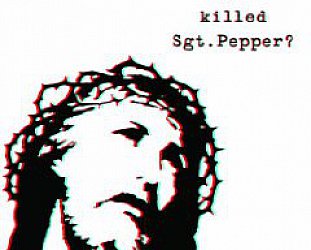


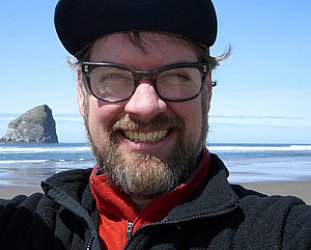
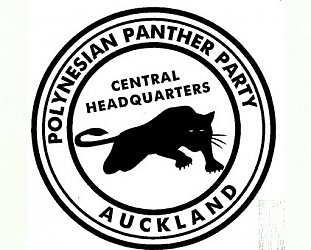
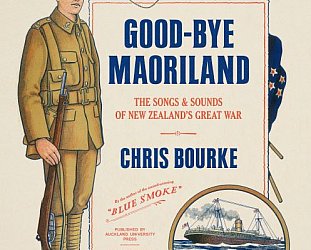
post a comment